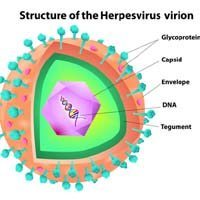Gene Targeting Slows Aggressive Form of Pleural Mesothelioma

Scientists in Vienna are developing a new treatment for a particularly aggressive form of pleural mesothelioma.
This form of mesothelioma occurs in people with a genetic mutation. The mutation produces signals that fuel tumor growth. These patients typically have an even worse prognosis than other mesothelioma patients.
But the Austrian team came up with a way to block activation of the mutated gene. If the gene does not send its signal, this aggressive form of pleural mesothelioma may grow more slowly.
Aggression Fueled by Telomerase
Malignant mesothelioma is one of the most aggressive kinds of cancer. It starts on the membranes around organs and can quickly spread to other parts of the body. By the time most people notice symptoms, mesothelioma may already be widespread.
But some people have an even more aggressive form of pleural mesothelioma. These people have a mutation involving the TERT gene.
The TERT gene regulates the production of telomerase. Telomerase is an enzyme that helps cells grow and divide. But too much telomerase makes mesothelioma cells grow and divide even faster than usual.
Most mesothelioma patients have more telomerase than healthy people. But people with an activated TERT mutation have even more than other mesothelioma patients. In these people, a protein “turns on” the gene and leads to more telomerase.
Scientists hoped blocking activation of the mutated TERT gene would slow down telomerase production for these patients.
Aggressive Form of Pleural Mesothelioma Responds to Drugs
The new research comes from the Medical University of Vienna. It appears in a recent issue of the journal Clinical Cancer Research.
Researchers say the protein that activates the TERT mutation is only present in a small group of patients. These patients also have a higher risk of other kinds of cancer.
Dr. Walter Berger and his team experimented on mesothelioma cells from surgical specimens. They looked for samples with the mutated TERT gene. Then they blocked the TERT-activating protein with a group of compounds. This stopped the aggressiveness of those cells.
This approach could become a new treatment for patients with this aggressive form of pleural mesothelioma.
“If this proves to be the case, the mutation would be both a biomarker for the selection of suitable patients and a therapeutic target – an ideal combination for precision medicine,” says Dr. Berger.
Genetics is a major focus for mesothelioma researchers around the world. Genes can help doctors better understand individual cancer cases and how best to treat them.
Some mesothelioma patients have a mutation on another gene called BAP1. Patients with the BAP1 gene mutation also tend to have a more aggressive form of pleural mesothelioma.
Sources:
Pirker, C., et al. (2020) Telomerase reverse transcriptase promoter mutations identify a genomically defined and highly aggressive human pleural mesothelioma subgroup. Clinical Cancer Research. https://clincancerres.aacrjournals.org/content/26/14/3819
“Researchers identify targeted treatment strategy for malignant pleural mesothelioma”, Life Sciences Medical News, https://www.news-medical.net/news/20200730/Researchers-identify-targeted-treatment-strategy-for-malignant-pleural-mesothelioma.aspx





